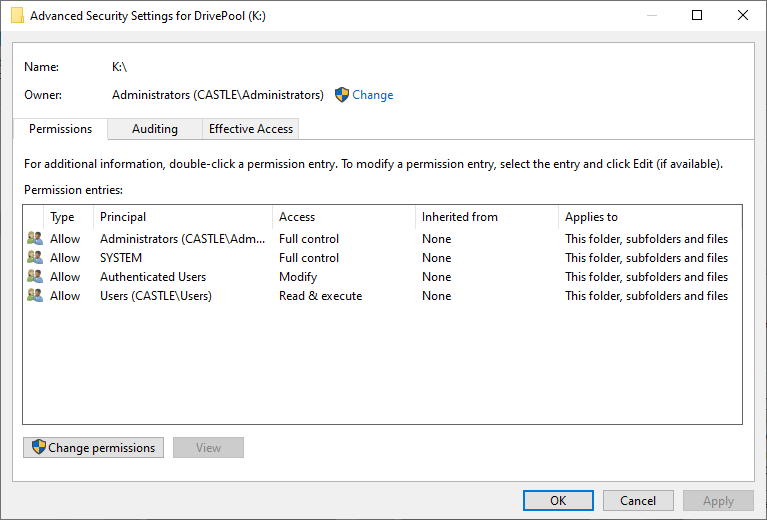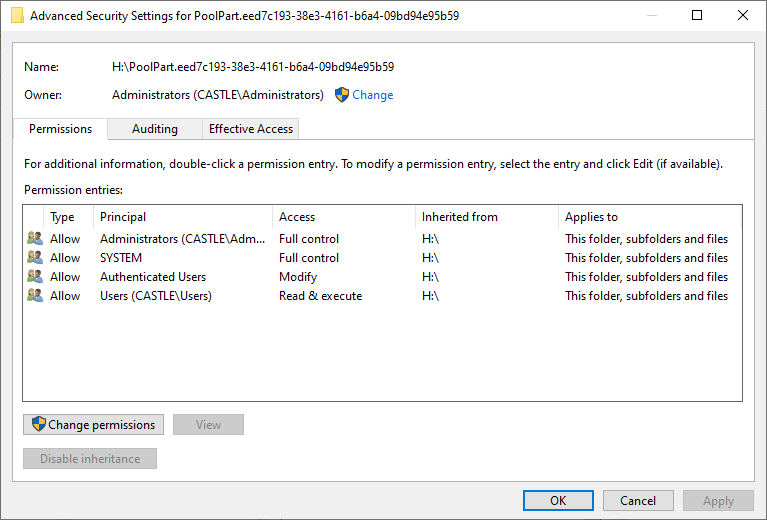Search the Community
Showing results for tags 'ownership'.
-
Spend long enough working with Windows and you may become familiar with NTFS permissions. As an operating system intended to handle multiple users, Windows maintains records that describe which user owns each file and folder and how much access each user has to those files and folders. These records are kept on the same volumes as those files and folders. Unfortunately, in the course of moving or copying folders and files around, Windows may fail to properly update these settings for a variety of reasons (e.g. bugs, bit errors, power interruptions, failing hardware). This can mean files and folders that you can no longer delete, access or even have ownership of anymore, sometimes for no obvious reason when you check via the Security tab of the file/folder's Properties (they can look fine but actually be broken inside). So, first up, here’s what the default permissions for a pool drive should look like: And now here’s what the default permissions for the hidden poolpart folder on any drive added to the pool should look like: The above are taken from a freshly created pool using a previously unformatted drive, on a computer named CASTLE that is using Windows 10 Professional. I believe it should be the same for all supported versions of Windows so far. Any entries that are marked Deny override entries that are marked Allow. There are limited exceptions for SYSTEM. It is optional for a hidden poolpart folder to Inherit its permissions from its parent drive. It is recommended that the Administrators account have Full control of all poolpart folders, subfolders and files. It is necessary that the SYSTEM account have Full control of all poolpart folders, subfolders and files. The permissions of files and folders in a pool drive are the permissions of those files and folders in the constituent poolpart folders. Caveat: duplicates are expected to have identical permissions (because in normal practice, only DrivePool should be creating them). My next post in this thread will describe how I go about fixing these permissions when they go bad.
- 7 replies
-
- administrators
- ntfs permissions
- (and 3 more)
-
I had corruption on a db and when i tried to restore, it kept failing. I then checked the security on the restore db and saw the above. Sometimes this happens on other files and i just wait awhile and the security comes back on its own but that doesnt seem to be the case this time.






